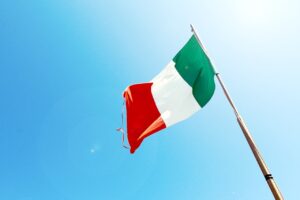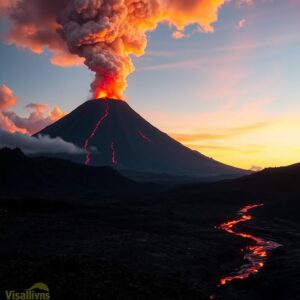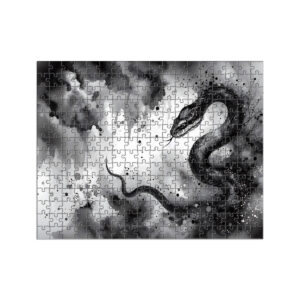
Explore & Play
Discover interesting topics and solve the accompanying crossword puzzle.
Politician Crossword | Explore Global Leaders’ Impact
Table of Contents
Before diving into our comprehensive article, we invite you to engage with our “Politician crossword” puzzle at the beginning of this post. It’s a fun way to test your knowledge and get familiar with key political figures from around the world. If you’re new to the topic or want more background information, feel free to read the article first and then return to the crossword puzzle for a hands-on learning experience. Enjoy exploring the world of influential leaders and their impact on global politics!
Politician Crossword
You can either fill in the crossword puzzle directly on this page or click the button in the bottom right corner to print it for free.

Global Leadership: A Comparative Study of Influential Politicians Across Continents
Political leadership is a critical force in shaping the world’s future. Leaders influence everything from economic growth and social justice to international diplomacy and climate policies. This article examines the contributions of notable political figures from across the globe, focusing on their unique leadership styles and the impact of their decisions on their countries and beyond. We will explore leaders from North America, South America, Europe, Asia, Africa, and Oceania, drawing connections between their diverse approaches to governance. Plus, we’ll offer you a chance to test your knowledge with a crossword puzzle featuring these global political figures!
North American Leaders
North America has produced an array of political leaders whose actions and policies have left an indelible mark on both regional and global politics.
United States
The United States is home to many leaders whose influence extends beyond its borders.
Joe Biden has emphasized climate change, social equity, and rebuilding alliances. His administration has focused on domestic reforms such as infrastructure investment and health care while promoting global cooperation on climate change.
Donald Trump made headlines with his “America First” agenda, marked by trade wars, an emphasis on national sovereignty, and significant foreign policy shifts, such as withdrawing from the Paris Agreement and renegotiating trade deals.
Barack Obama pursued progressive reforms, including the Affordable Care Act, and enhanced America’s global standing through diplomacy, such as the Iran nuclear deal and the pivot to Asia.
Hillary Clinton was a pioneering female politician, known for her focus on human rights, health care, and foreign policy, especially during her tenure as Secretary of State.
Bernie Sanders has been a vocal advocate for progressive causes, including income inequality, universal healthcare, and free public college, reshaping the Democratic Party’s platform.
Nancy Pelosi has played a crucial role in U.S. politics as Speaker of the House, particularly in legislative battles over health care, the economy, and impeachment proceedings.
Mitch McConnell, known for his strategic acumen in the Senate, has been a significant force in shaping U.S. judicial appointments and conservative policy agendas.
Alexandria Ocasio-Cortez (AOC) represents a new generation of progressive leadership, advocating for the Green New Deal and policies on social justice and income equality.
Elizabeth Warren has made her mark with a focus on economic reform, consumer protection, and her push for stricter regulations on Wall Street.
Pete Buttigieg, currently serving as Secretary of Transportation, gained prominence for his ideas on urban development, infrastructure, and his inclusive vision for America.
Canada
Canadian leaders have shaped the country’s multicultural policies and economic stability, positioning Canada as a leader in global affairs.
Justin Trudeau, Canada’s current Prime Minister, has championed progressive policies, including multiculturalism, environmental action, and Indigenous rights. His leadership style balances domestic priorities with a global vision.
Stephen Harper, a former Prime Minister, led Canada through a period of economic stability and conservative governance, emphasizing fiscal responsibility and strong foreign policy.
Jean Chrétien was a seasoned leader known for his focus on social programs, economic management, and navigating Canada through the challenges of globalization.
Pierre Trudeau, one of Canada’s most charismatic leaders, left a lasting legacy by promoting Canadian federalism, multiculturalism, and the Charter of Rights and Freedoms.
Mexico
Mexican leaders have navigated a complex political landscape, facing challenges such as corruption, economic reform, and social inequality.
Andrés Manuel López Obrador (AMLO) is the current President, known for his anti-corruption stance, social welfare programs, and efforts to reduce inequality.
Enrique Peña Nieto initiated several economic reforms, including opening the oil sector to private investment, but faced criticism for corruption scandals.
Felipe Calderón was known for his aggressive stance against drug cartels, which defined his presidency but also led to a surge in violence.
Vicente Fox marked a historic shift as the first president from the opposition in 71 years, focusing on economic reform and democratic governance.
South American Leaders
South American politics is shaped by dynamic leaders who have faced both internal and external challenges, ranging from economic crises to social upheavals.
Brazil
Brazilian leaders have been central figures in the region, influencing both domestic policies and broader South American politics.
Luiz Inácio Lula da Silva, recently re-elected as President, is celebrated for his social programs that lifted millions out of poverty. Lula’s tenure is also noted for strong economic growth and a focus on reducing inequality.
Jair Bolsonaro has been a polarizing figure with his controversial views on environmental policies, human rights, and the COVID-19 pandemic, which sparked both local and global criticism.
Dilma Rousseff, the first female President of Brazil, focused on economic reforms and social welfare but was ultimately impeached amid a major corruption scandal.
Argentina
Argentinian leaders have navigated through turbulent economic times and political transitions.
Alberto Fernández is the current President, dealing with economic challenges and pursuing policies aimed at recovery and social justice.
Cristina Fernández de Kirchner, a former President and now Vice President, is known for her populist policies and confrontational style. She has a loyal following but also faces numerous legal challenges.
Mauricio Macri pursued pro-market reforms, attempting to stabilize the economy through austerity measures, which sparked both support and opposition.
Chile
Chilean leaders have been at the forefront of managing social reforms and economic policies.
Gabriel Boric, the youngest President in Chile’s history, is a progressive leader focused on social justice, environmental policies, and a new constitution.
Sebastián Piñera served two non-consecutive terms, known for his economic management but faced significant social unrest over inequality.
Michelle Bachelet, the first female President of Chile, is recognized for her progressive social policies and her role in international human rights as a UN High Commissioner.
Colombia
Colombian leaders have managed complex issues of peace and economic development.
Gustavo Petro, Colombia’s first left-wing President, has focused on progressive policies, peace-building, and addressing social inequality.
Iván Duque faced numerous challenges, including mass protests and economic issues, while advocating for business-friendly policies.
Juan Manuel Santos won the Nobel Peace Prize for his efforts in negotiating a peace agreement with the FARC, ending decades of conflict.
European Leaders
Europe’s political landscape is marked by leaders who have significantly shaped both domestic and international affairs.
United Kingdom
UK leaders have had a profound impact on global politics, particularly in recent years with the Brexit process.
Rishi Sunak is the current Prime Minister, focused on stabilizing the economy post-Brexit and handling the ongoing challenges of the pandemic.
Boris Johnson led the UK through its final stages of Brexit, his tenure characterized by political turbulence and an emphasis on “Global Britain.”
Theresa May sought to deliver Brexit amidst a deeply divided Parliament, known for her resilience in the face of political adversity.
David Cameron initiated the Brexit referendum, setting the stage for the UK’s departure from the EU, while also focusing on austerity measures domestically.
Tony Blair remains a prominent figure for his role in modernizing the Labour Party and his controversial decision to support the Iraq War.
France
French leaders have played key roles in Europe and beyond, with a focus on economic reform, social justice, and international diplomacy.
Emmanuel Macron, France’s current President, is known for his pro-EU stance, market-friendly reforms, and efforts to position France as a global leader.
Marine Le Pen has emerged as a strong right-wing challenger, advocating for national sovereignty and opposing the EU’s influence on France.
François Hollande faced economic challenges and focused on social reforms, though his presidency was marked by economic struggles.
Nicolas Sarkozy emphasized economic reform and a proactive foreign policy, particularly in the context of the Libyan intervention.
Germany
German leaders have been pivotal in shaping European Union policies and global economic strategies.
Olaf Scholz, the current Chancellor, is navigating a complex landscape with a focus on economic stability, European integration, and social policies.
Angela Merkel served as Chancellor for 16 years, known for her steady leadership during the Eurozone crisis, her handling of the migrant crisis, and her role in strengthening the EU.
Helmut Kohl was instrumental in German reunification and promoting European integration through the Maastricht Treaty.
Italy
Italian leaders have influenced European politics with their economic policies, political reforms, and handling of internal challenges.
Giorgia Meloni, the current Prime Minister, is known for her conservative stance, promoting national sovereignty, and her focus on immigration and social issues.
Mario Draghi, a former Prime Minister and former ECB President, is renowned for his economic expertise and his efforts to stabilize Italy’s economy.
Giuseppe Conte served two terms with contrasting coalitions, focusing on economic reform, social justice, and managing the COVID-19 crisis.
Spain
Spanish leaders have shaped their country’s responses to economic and political crises while influencing broader European policies.
Pedro Sánchez, the current Prime Minister, is recognized for his progressive policies, including LGBTQ+ rights and environmental initiatives.
Mariano Rajoy managed Spain through the Eurozone crisis, implementing austerity measures that sparked significant public backlash.
José Luis Rodríguez Zapatero is noted for his progressive social policies, including legalizing same-sex marriage and enhancing social welfare.
Norway
Norwegian leaders have played vital roles in shaping both national policies and contributing to international diplomacy, particularly through their commitments to sustainability, economic stability, and global cooperation.
Gro Harlem Brundtland: A trailblazer in Norwegian politics, Brundtland served as Prime Minister for three terms and is renowned for her advocacy on environmental issues and social welfare. She is often referred to as the “mother of sustainable development” for her work with the World Commission on Environment and Development.
Jens Stoltenberg: Stoltenberg, a former Prime Minister of Norway, is currently serving as the Secretary General of NATO. Known for his pragmatic approach to politics, he has played a significant role in international security, fostering cooperation and stability in a rapidly changing global landscape.
Erna Solberg: As a former Prime Minister and leader of the Conservative Party, Solberg focused on economic reforms, job creation, and social integration. She is also noted for her efforts in promoting gender equality and her leadership during the European refugee crisis.
Russia
Russian leaders have exerted a strong influence both domesticallyand internationally, with a focus on expanding national power and maintaining control over the region.
Vladimir Putin has been the dominant figure in Russian politics for over two decades, known for consolidating power, suppressing dissent, and asserting Russia’s influence globally through actions such as the annexation of Crimea and involvement in Syria.
Dmitry Medvedev served as President and Prime Minister, often seen as a more liberal counterbalance to Putin, but his term was marked by continuity rather than significant reform.
Boris Yeltsin was the first President of the Russian Federation, remembered for his role in the dissolution of the Soviet Union and the turbulent transition to a market economy.
Ukraine
Ukrainian leaders have been central figures in the ongoing struggle for national sovereignty and democratic governance amidst external pressures.
Volodymyr Zelensky is the current President, a former comedian who rose to prominence with his anti-corruption stance and leadership during the Russian invasion of Ukraine, winning global admiration.
Viktor Yanukovych was a former President ousted during the 2014 Euromaidan protests, known for his pro-Russian policies and alleged corruption.
Yulia Tymoshenko has been a key political figure, serving as Prime Minister and known for her opposition to Russian influence and her charismatic leadership style.
Asian Leaders
Asia is home to diverse political landscapes and leaders who have shaped both regional and global policies.
China
Chinese leaders have steered the country through rapid economic growth and increasing global influence.
Xi Jinping is the current President, known for his strong centralized control, anti-corruption campaigns, and efforts to position China as a global superpower through initiatives like the Belt and Road Initiative.
Hu Jintao was Xi’s predecessor, focused on economic growth and maintaining social stability, while promoting a “Harmonious Society.”
Jiang Zemin oversaw China’s entry into the World Trade Organization (WTO) and pushed for economic reforms that set the stage for China’s modern development.
India
India’s leaders have played crucial roles in shaping the country’s democratic identity and economic progress.
Narendra Modi is the current Prime Minister, known for his economic reforms, emphasis on Hindu nationalism, and global diplomatic outreach.
Rahul Gandhi is a prominent opposition leader known for his push against Modi’s policies and his advocacy for social welfare and secularism.
Manmohan Singh served as Prime Minister, known for his role in liberalizing the Indian economy and fostering economic growth and development.
Japan
Japanese leaders have navigated complex political landscapes, focusing on economic stability, security policies, and international diplomacy.
Fumio Kishida is the current Prime Minister, emphasizing economic security, regional stability, and strengthening alliances, particularly with the United States.
Yoshihide Suga succeeded Shinzo Abe and focused on continuing his predecessor’s policies, especially those related to economic reform and the COVID-19 pandemic response.
Shinzo Abe, Japan’s longest-serving Prime Minister, was known for his economic policies (Abenomics), and efforts to strengthen Japan’s military and international alliances.
South Korea
South Korean leaders have managed economic growth, democratic reforms, and complex relationships with North Korea.
Yoon Suk-yeol is the current President, known for his conservative stance, commitment to national security, and efforts to strengthen ties with the United States.
Moon Jae-in was known for his progressive policies, efforts to engage North Korea in dialogue, and social welfare initiatives.
Park Geun-hye was the first female President of South Korea, remembered for her conservative policies and impeachment over a corruption scandal.
Indonesia
Indonesian leaders have been pivotal in guiding the nation through economic transformation and democratization.
Joko Widodo (Jokowi) is the current President, known for his infrastructure projects, commitment to economic reform, and efforts to tackle corruption.
Susilo Bambang Yudhoyono was a former President who led Indonesia through a period of economic growth and political stability, focusing on democratization and anti-corruption measures.
Philippines
Philippine leaders have shaped the country’s socio-political landscape amid challenges such as poverty, corruption, and international relations.
Ferdinand Marcos Jr. is the current President, focusing on continuity in economic policies, infrastructure development, and managing historical perceptions of his family.
Rodrigo Duterte was a controversial leader known for his harsh anti-drug campaign, which drew international condemnation but also substantial domestic support.
Benigno Aquino III is remembered for his anti-corruption efforts, economic reforms, and fostering stronger ties with international allies.
African Leaders
African leaders have faced unique challenges and have been instrumental in driving both national development and regional integration.
South Africa
South African leaders have navigated the country through apartheid and into democracy, each leaving a distinct mark on the nation.
Cyril Ramaphosa is the current President, known for his focus on economic reform, anti-corruption efforts, and improving governance.
Jacob Zuma was a controversial leader whose presidency was marked by allegations of corruption and economic mismanagement, leading to significant political turmoil.
Nelson Mandela remains an iconic figure, celebrated globally for his role in ending apartheid and promoting national reconciliation and democracy.
Nigeria
Nigerian leaders have grappled with challenges such as corruption, economic development, and regional stability.
Bola Ahmed Tinubu is the current President, known for his political influence and focus on economic development and security issues.
Muhammadu Buhari was a former President known for his anti-corruption stance, efforts to tackle terrorism, and economic reform policies.
Goodluck Jonathan led Nigeria through a period of economic growth and democratic governance, but faced criticism for his handling of security challenges.
Egypt
Egyptian leaders have steered the country through periods of revolution, reform, and restoration.
Abdel Fattah el-Sisi is the current President, known for his authoritarian rule, focus on security, and ambitious economic reforms aimed at revitalizing the Egyptian economy.
Mohamed Morsi was a former President whose tenure was marked by his affiliation with the Muslim Brotherhood and his ousting in a military coup.
Hosni Mubarak ruled Egypt for three decades before being overthrown during the Arab Spring, his tenure marked by economic liberalization but also authoritarianism and corruption.
Kenya
Kenyan leaders have played critical roles in managing ethnic diversity and economic development.
William Ruto is the current President, focusing on economic reforms, agricultural development, and social policies aimed at reducing poverty.
Uhuru Kenyatta served as President, known for his infrastructural development initiatives and efforts to combat corruption.
Mwai Kibaki was a former President who presided over economic growth and policy reforms that aimed to stabilize and develop the country.
Oceania Leaders
Oceania’s leaders have balanced domestic needs with global responsibilities, fostering growth and promoting progressive policies.
Australia
Australian leaders have focused on economic growth, social policies, and environmental concerns.
Anthony Albanese is the current Prime Minister, known for his progressive stance on climate change, economic reform, and social justice.
Scott Morrison was a former Prime Minister whose tenure was defined by his handling of the COVID-19 pandemic and his emphasis on economic policies and national security.
Malcolm Turnbull was a former Prime Minister who focused on economic reform, innovation, and bridging the political divide within his party.
New Zealand
New Zealand’s leaders have been recognized for their progressive governance and focus on social justice and international diplomacy.
Jacinda Ardern is the current Prime Minister, praised for her compassionate leadership, handling of crises like the Christchurch attack, and her focus on social policies and climate action.
John Key was a former Prime Minister who navigated the global financial crisis with economic prudence while maintaining social welfare.
Helen Clark was a former Prime Minister known for her focus on social welfare, environmental sustainability, and her leadership role in international organizations.
Comparative Analysis of Global Leadership
While these leaders come from diverse backgrounds and govern different regions, their approaches to leadership reveal both common themes and unique differences.
Leadership Styles: Comparing Authoritative, Progressive, and Reformative Approaches
From Xi Jinping’s authoritative control in China to Jacinda Ardern’s empathetic leadership in New Zealand, global leaders have exhibited a range of leadership styles shaped by their political contexts and national needs.
Economic Strategies: Balancing Growth, Stability, and Inequality
Whether through aggressive market reforms like those seen in Brazil under Jair Bolsonaro or social welfare programs like Lula da Silva’s, economic strategies vary widely, reflecting differing national priorities and challenges.
Addressing Crises: Responses to Pandemics, Economic Downturns, and Political Unrest
The global pandemic, economic instability, and political unrest have tested leaders worldwide. The varied responses—from Scott Morrison’s handling of COVID-19 to Angela Merkel’s economic diplomacy during the Eurozone crisis—demonstrate the diverse approaches taken to manage crises.
Influence on Global Policies: Climate Change, Security, and International Relations
Global challenges like climate change and security have driven leaders to make significant international commitments, as seen with Emmanuel Macron’s climate diplomacy or Joe Biden’s push for multilateral cooperation.
Reflections on Global Leadership
In examining these leaders, it is clear that modern politics is characterized by complexity, interconnectedness, and varying leadership styles. The impact of these leaders reaches far beyond their own borders, influencing global policies, economic strategies, and the fight for social justice. As youexplore the nuances of their governance, you gain insight into the shared challenges and unique opportunities faced by nations worldwide. By understanding the diverse approaches of these influential figures, we not only comprehend the present state of global politics but also gain a clearer view of its future trajectory.
Conclusion: Bridging the Global Political Landscape
From North America to Oceania, the leaders featured in this article represent a mosaic of political philosophies, strategies, and impacts. Their legacies, whether shaped by crisis management, economic reform, or social justice, continue to shape the world. Understanding these leaders helps us appreciate the complexities of global governance and the varied paths nations take toward progress. To see how much you’ve absorbed about these global leaders, why not challenge yourself with our crossword puzzle? It’s a fun way to test your knowledge and explore more about the world’s most influential politicians.
Share to...
I hope you enjoy the content.
Want to receive our daily crossword puzzle or article? Subscribe!
You may also be interested in
Share to…
Want to receive our daily crossword puzzle?
-
Jigsaw Puzzles
Chinese Zodiac Serpent Watercolor Jigsaw Puzzle 250 | 300 | 500 Pieces
kr 348,00 – kr 439,00Price range: kr 348,00 through kr 439,00 Select options This product has multiple variants. The options may be chosen on the product page -
Jigsaw Puzzles
Zodiac Ink Dog Puzzle: Artful Elegance 250 | 300 | 500 Pieces
kr 348,00 – kr 439,00Price range: kr 348,00 through kr 439,00 Select options This product has multiple variants. The options may be chosen on the product page -
Jigsaw Puzzles
Trolltunga Abstract Jigsaw Puzzle 250 | 300 | 500 Pieces
kr 348,00 – kr 439,00Price range: kr 348,00 through kr 439,00 Select options This product has multiple variants. The options may be chosen on the product page

















